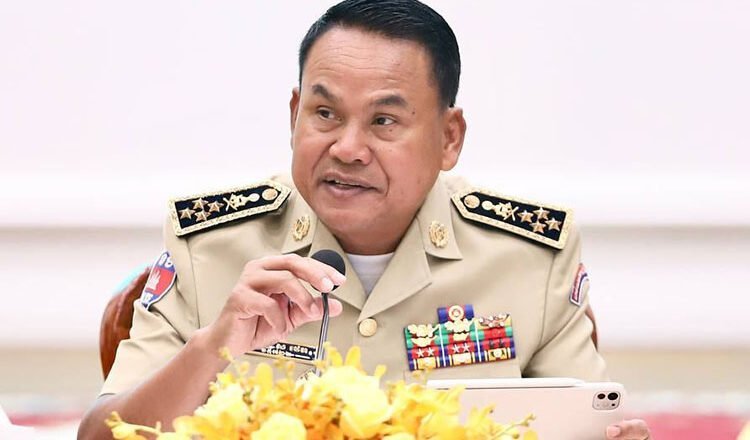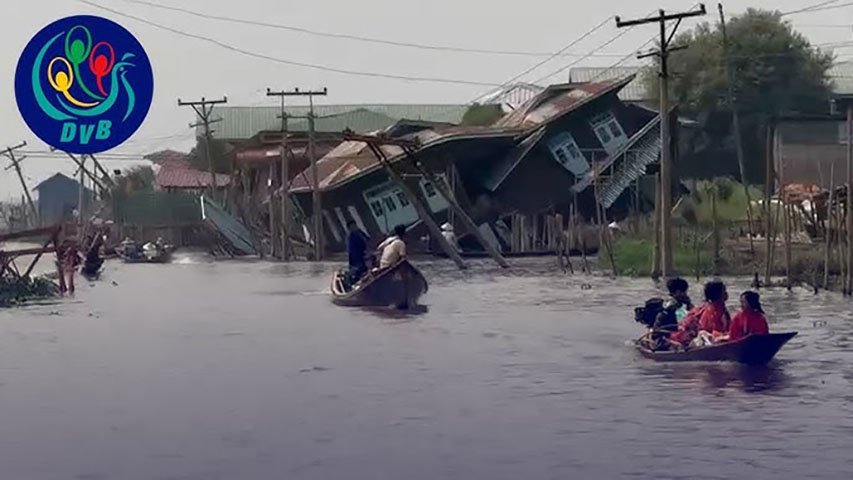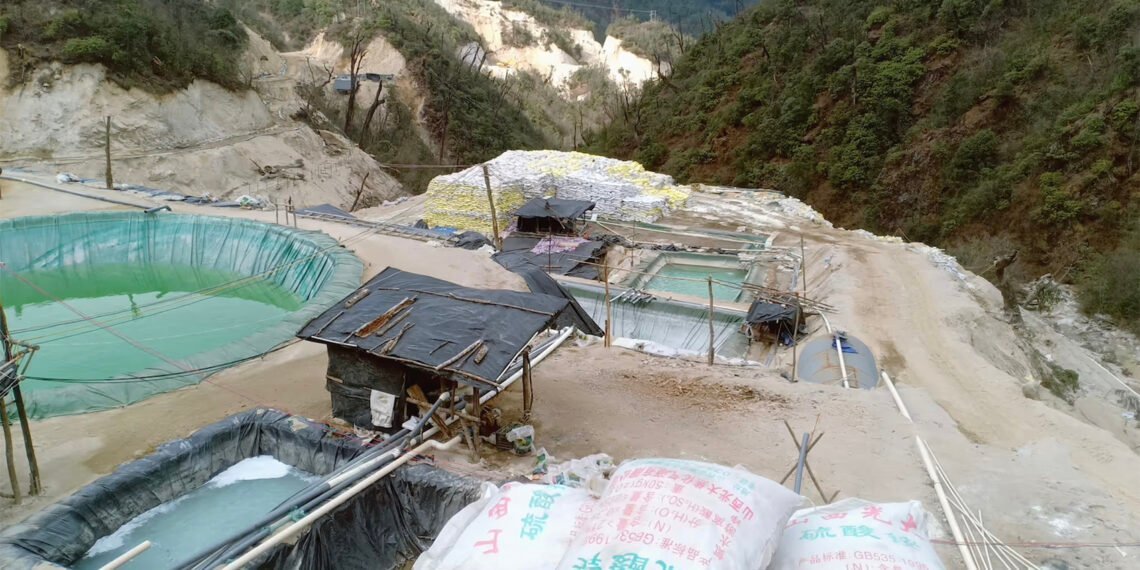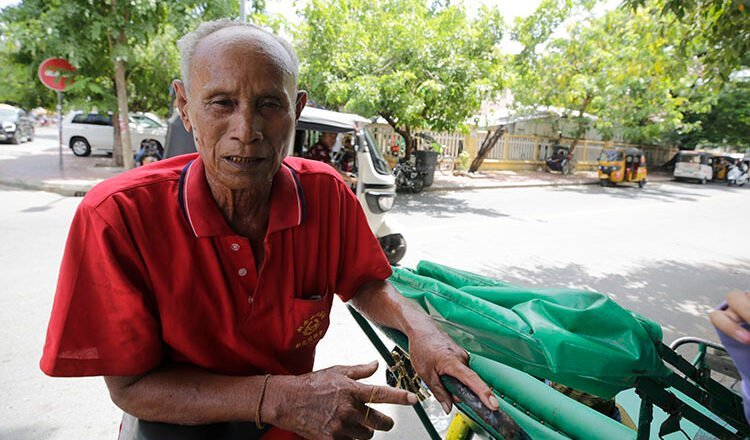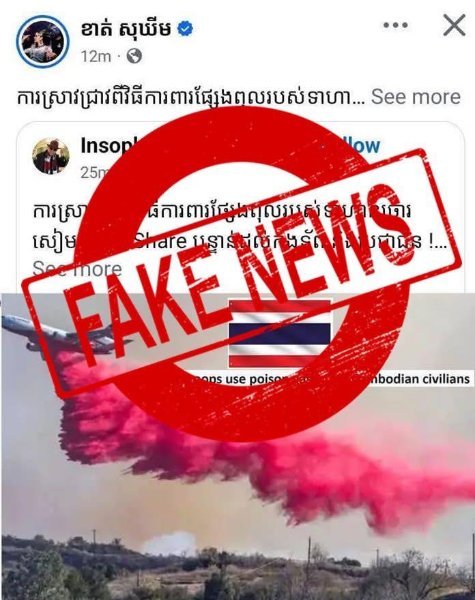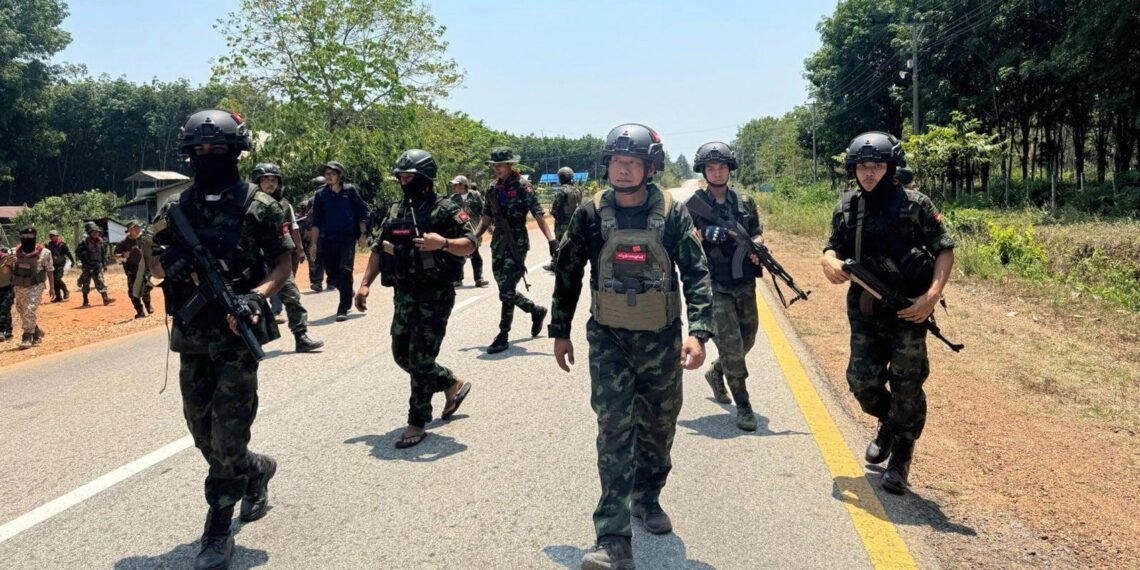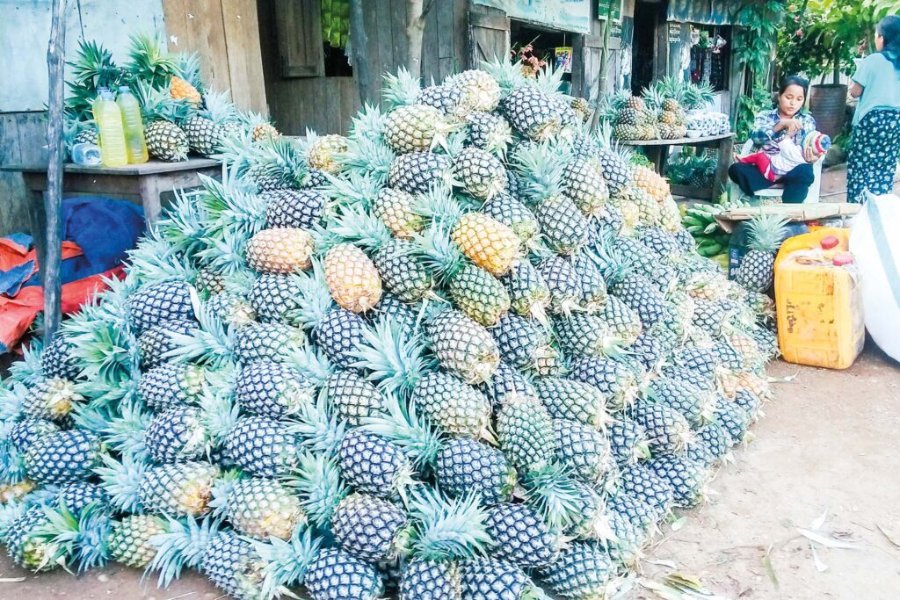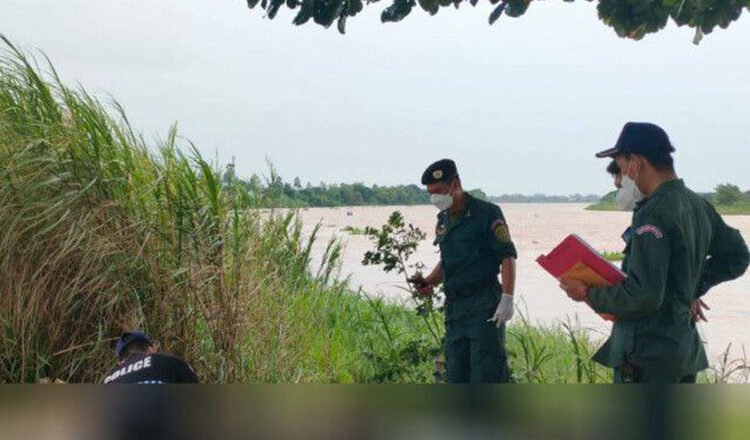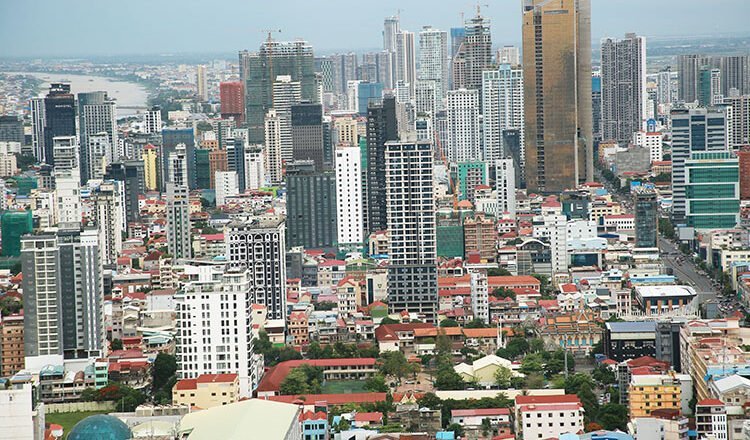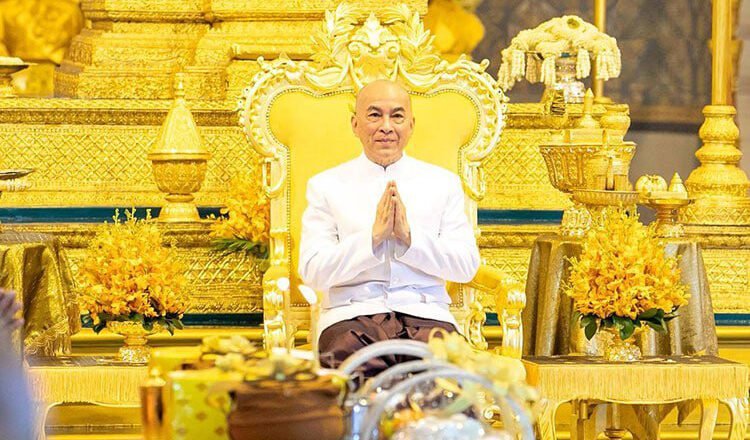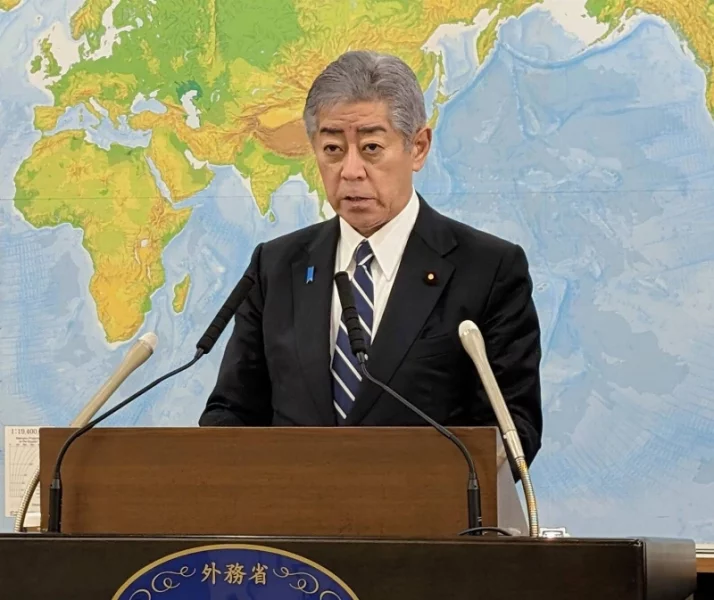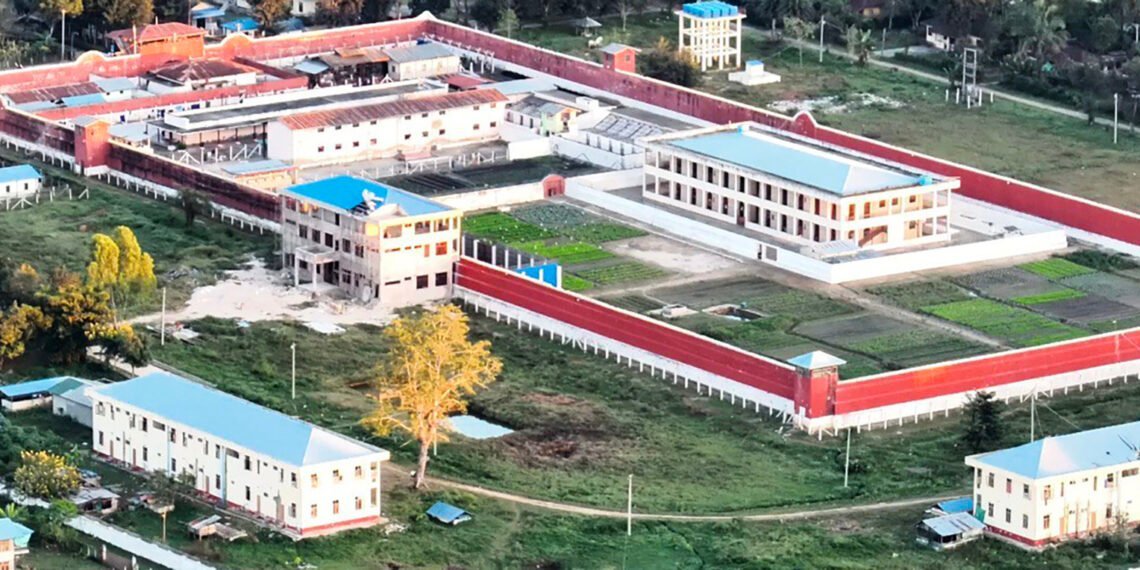-
Posts
15,904 -
Joined
-
Last visited
Profile Information
-
Location
10400
Previous Fields
-
Location
Bangkok
Recent Profile Visitors
54,907 profile views
geovalin's Achievements
-
The sudden death of 23-year-old French volunteer Lisa Girard-Fabre near Angkor Archaeological Park has sparked grief and growing calls for clarity, as her family and supporters question the official account provided by Cambodian authorities. Girard-Fabre, who led the Education Project at Pour un Sourire d’Enfant (PSE) in Phnom Penh, was found dead in a dry canal near Ta Som temple on 27 July. Police say she died of cardiac arrest due to over-exertion from running, with no signs of violence and all personal belongings intact. However, her family and friends remain unconvinced, citing a lack of detailed information and transparency. Tributes have poured in across social media, notably a viral post by her friend Greg Lange titled “She Hitchhiked 10,000 KM to Help Children. She Never Made It Home.” Lange described Girard-Fabre as “full of fire” and “a healthy 23-year-old, training daily,” raising doubts over the plausibility of sudden cardiac arrest without further explanation. Girard-Fabre’s journey to Cambodia was marked by extraordinary commitment: in 2024, she hitchhiked across 15 countries to raise €3,600 for PSE, supporting children in poverty. Her return to Cambodia earlier this year as an intern reflected her deep dedication to social work and the Cambodian youth she served. Brigadier General Touch Sokun of the Siem Reap Provincial Police reiterated that the post-mortem confirmed death by over-exertion. Yet the emotional outpouring and persistent questions from the public suggest that the official narrative has not provided closure. The case has reignited broader concerns about transparency and accountability in Cambodia’s handling of foreign nationals’ deaths, especially those involved in humanitarian work. As tributes continue, so do calls for a more thorough investigation and open communication from authorities. -2025-08-08
-
Police Cambodia’s National Police has unveiled a round-the-clock emergency hotline aimed at safeguarding expatriates, tourists and diplomats across the Kingdom, in a move designed to bolster public trust and attract foreign investment. The service, announced on 8 August, allows foreigners to seek immediate assistance by dialling 031 201 2345 or 031 601 2345, or by emailing [email protected]. National Police Chief General Sar Thet confirmed that embassies and consulates have been briefed on the initiative, which forms part of a wider strategy to enhance safety and security for international residents and visitors. “This mechanism is especially important for diplomatic missions and foreign investors,” Gen Thet said, adding that the police, backed by the Ministry of Interior, are intensifying efforts to combat cybercrime and other modern threats. The hotline is intended not only to provide rapid support but also to reinforce Cambodia’s image as a safe and welcoming destination. The initiative comes amid broader efforts to improve public security and reduce crime. Lieutenant General Chuon Narin, Phnom Penh’s Police Chief, reported earlier this year that crime in the capital had declined in the first quarter, with incidents dropping from 140 to 122 compared to the same period in 2024. While theft and robbery have decreased, police patrols in sensitive areas remain a priority. The hotline reflects Cambodia’s commitment to creating a secure environment for all who live in or visit the country. Authorities hope the move will reassure foreign nationals and strengthen confidence in the Kingdom’s law enforcement capabilities. -2025-08-08
-
In a bold move to re-engage with the United States, Myanmar’s military-led government has signed a $3 million-a-year contract with Washington lobbying firm DCI Group, aiming to rebuild diplomatic ties and promote trade, natural resources, and humanitarian cooperation. The agreement, revealed in filings under the U.S. Foreign Agents Registration Act, was signed on 31 July—the same day the junta nominally handed power to a civilian-led interim government. However, Senior General Min Aung Hlaing retains full control as acting president and armed forces chief, signalling little real change in governance. The DCI Group, whose partners include former Trump administration officials, is tasked with reshaping Myanmar’s image in Washington. This comes despite ongoing U.S. sanctions against Myanmar’s military leaders, imposed after the 2021 coup and the brutal crackdown on the Rohingya minority, which Washington has labelled genocide. The timing of the deal coincides with renewed overtures from Min Aung Hlaing to former President Donald Trump, including a personal response to Trump’s recent tariff threats. The general praised Trump’s “strong leadership” and offered to send negotiators to Washington, seeking relief from sanctions and better trade terms. The lobbying firm itself has faced scrutiny, including an FBI investigation into alleged hacking activities—claims it denies. Its past ties to Myanmar’s previous junta have also stirred controversy, with two aides to John McCain resigning in 2008 over related work. Meanwhile, Myanmar’s state media confirmed the death of Myint Swe, the former president installed during the 2021 coup, further consolidating Min Aung Hlaing’s grip on power. Engaging the junta marks a stark shift in U.S. policy, though officials insist recent lifting of sanctions on certain allies does not signal broader rapprochement. Behind the scenes, Washington is weighing options to divert Myanmar’s rare earth minerals away from China, a strategic move in the global tech and defence race. As Myanmar seeks legitimacy and economic leverage, its outreach to Washington—via high-powered lobbying—underscores the complex dance of diplomacy, sanctions, and strategic interests in Southeast Asia. -2025-08-08
-
- 1
-

-
DVB Six people have died and over 100 homes were destroyed after flash floods tore through a rebel-controlled town on Myanmar’s mountainous border with China, local sources confirmed on Wednesday. The northern town of Laiza, a stronghold of the Kachin Independence Army (KIA), was inundated by waist-deep muddy waters after days of intense monsoon rains. The flooding began early Monday, sending torrents crashing down from the surrounding hills and into the town’s streets. "A lot of water flowed down the mountain to the river," said KIA spokesperson Naw Bu. “The flow was too strong and destroyed areas near the riverbank.” Rescue efforts are now underway, though progress is slow. Road access to Laiza has been severely disrupted, with some routes washed away entirely. “All of the roads have been damaged,” said one resident, who asked not to be named. “The water rose suddenly—many didn’t have time to escape.” The floods have dealt a particularly harsh blow to the town’s many internally displaced people, already living in fragile shelters due to Myanmar’s ongoing civil war. Local camps were badly affected, with several shelters reportedly swept away and injuries reported among the displaced. Laiza is located in Kachin State near China’s Yunnan province and has long operated under the control of the KIA, one of the most powerful ethnic armed groups resisting the military junta since the 2021 coup. Over 3.5 million people are currently displaced across Myanmar as conflict continues to ravage the country. While monsoon flooding is a seasonal hazard in Myanmar, experts warn that climate change is intensifying extreme weather events in the region. As humanitarian needs grow, local groups face mounting challenges delivering aid in areas already destabilised by war. With rains expected to continue, fears remain high for those still trapped or cut off by the floodwaters. -2025-08-07
-
- 2
-

-

-
Global witness As Myanmar’s military junta prepares for widely condemned elections, the Trump administration’s unexpected move to lift sanctions on junta-linked elites is raising eyebrows—especially as reports emerge of US interest in Myanmar’s rare earth minerals. Just last week, President Trump removed sanctions on military-affiliated figures and companies, prompting swift condemnation from the UN’s human rights envoy. Critics suggest the decision is less about diplomacy and more about geopolitics, particularly the race to secure strategic resources away from China’s grip. Myanmar holds the world’s third-largest rare earth deposits—critical elements used in everything from smartphones to missile systems. Since the 2021 coup, mining has surged in contested areas like Kachin State, much of which is controlled by the anti-junta Kachin Independence Organization (KIO). Last year, the KIO seized key mining towns and struck a deal with China on export taxes, underscoring Beijing’s dominance in the trade. Now, US insiders hint that Trump is exploring rare earth access—either by engaging the junta directly or cutting deals with the KIO. But experts say both options are riddled with risks. The region is a war zone, infrastructure is virtually nonexistent, and any attempt to undercut China would likely provoke retaliation, including economic pressure on the KIO. What’s more, rare earth mining is notoriously toxic. Even if the US could bypass Beijing and the junta, legal and reputational risks could deter American firms from operating in such volatile territory. Meanwhile, Myanmar’s planned December-January elections offer little credibility. The junta recently lifted the nationwide state of emergency—then swiftly reimposed martial law across dozens of opposition strongholds, revealing the regime’s fragile control and undermining any claim of democratic transition. Coup leader Min Aung Hlaing retains power under a rebranded title, and opposition parties have pledged to boycott what they call a sham process. As analysts warn against legitimising the junta’s rule, many see Trump’s softening stance as dangerously short-sighted. Whatever the motivations—geostrategic or commercial—the move risks bolstering a regime widely rejected by its own people. If democracy is to mean anything in Myanmar, Washington must stand firm. This is no time for backdoor deals or appeasement dressed as diplomacy. -2025-08-07
- 1 reply
-
- 3
-

-

-
Net Sarom, KT As tensions with Thailand simmer along Cambodia’s western border, the capital’s cyclo drivers—many elderly, some veterans—continue their daily grind through uncertain streets, haunted by memories of past wars and fearful of what lies ahead. In Phnom Penh, the distant sound of artillery is absent, but anxiety lingers. For Ong Muth, a former soldier turned cyclo driver, today’s standoff feels all too familiar. “I’ve lived through wars before,” he said, “but this one worries me deeply. The way the Thai forces act—it’s not just weapons, it’s trust they’re breaking.” With 18 Cambodian soldiers reportedly still detained and two returned severely injured, the ceasefire feels fragile at best. For drivers like Kham Roeun, whose family lives near the frontline, the sense of unease grows daily. “This isn’t just military posturing anymore,” he said. “They’ve gone too far. We need unity now more than ever.” The economic toll is equally apparent. Hong Cheu, who pedals his cyclo through the city centre, says fewer passengers and a tense atmosphere have made each day harder. “People are staying home. I’ve lost business. The border may be far, but its impact is right here,” he said. For others, like Korm Kun, a retired soldier still working to support himself, fear takes a back seat to frustration. “I’ve seen worse on the battlefield,” he said. “But what matters now is that peace, if promised, is real—not just words.” Rickshaw driver Hong Songha echoed the sentiment, blaming modern weaponry and repeated ceasefire breaches for what he sees as a dangerous escalation. “This is more than border tension now,” he warned. “It’s hurting all of us.” And for Neth Sarom, the news of captured soldiers has been deeply personal. “When I heard about the injuries, my heart sank,” he said quietly. “My son wants me to stop working, to stay safe. I just want this to end.” Far from the front, these men pedal on—each ride marked not just by effort, but by an unspoken hope that peace, this time, will hold. -2025-08-07
-
As border tensions flare once more with Thailand, Cambodia is finding itself outmanoeuvred—not on the battlefield, but in the information war playing out across global media and social networks. Online, Cambodian influencers are voicing outrage over what they see as unfair international coverage. Pop star Sinora Roath accused Thailand of greed in a viral video, while content creator Chris Dyna claimed the global press “only reports from Thailand,” skewing public perception. “Just because Thailand is bigger and has more media coverage, Cambodia is a villain now?” asked influencer SreyNea Nea. Yet the problem, say analysts, is less about media bias and more about Cambodia’s own failure to support a free press. In contrast to Thailand—rated “partly free” and still home to active civil society and critical journalism—Cambodia has spent years gutting its independent media. The closure of Voice of Democracy in 2023 was just the latest blow, following the shutdown or state capture of the Cambodia Daily, Phnom Penh Post, and dozens of radio stations. Journalists who persist in investigating power face threats, arrests or exile. With nearly all credible media voices silenced, Cambodia has become what critics call an “information vacuum.” International outlets like Reuters, Al Jazeera and the BBC base their regional reporting in Bangkok, where at least some degree of press freedom remains. Cambodia, by contrast, offers little access and less transparency. The result is predictable: in the absence of independent reporting from Phnom Penh, the world is hearing mostly from Thailand. Many Cambodians now decry foreign “misinformation,” yet years of domestic censorship have left the country without trusted channels to challenge it. As the war of narratives unfolds, it is influencers—not journalists—who are left to defend Cambodia’s case, often without facts to back it up. If the Cambodian government wants its story heard, it must first allow someone to tell it. In the information age, credibility cannot be manufactured through slogans or silenced dissent. It must be earned—by letting the truth speak freely. -2028-08-07
-
MSRF Myanmar’s military regime has reinstated sweeping powers to conduct warrantless arrests, home raids, and surveillance, in what critics say is a pre-election crackdown designed to crush opposition and tighten control ahead of the junta’s controversial December polls. On Friday, the junta’s newly rebranded governing body, the National Security and Peace Commission (NSPC), suspended key sections of the 2017 Privacy Law—articles that had once guaranteed citizens protection from arbitrary detention and surveillance. The move reintroduces powers scrapped just a week ago with the official end of emergency rule. Authorities may now arrest and detain individuals without a warrant, enter private properties unannounced, and hold suspects beyond 24 hours without court approval. They’re also permitted to monitor private communications and confiscate or destroy personal correspondence. Though framed as a legal measure, observers say the timing and scope of the suspension are telling. “This is not just about law enforcement—it’s a tool to silence dissent and cement control during a staged election,” said Ko Min Naung Khaing, a former judge now aligned with Myanmar’s Civil Disobedience Movement. The military had previously suspended these provisions following the 2021 coup. Their renewal, signed by junta leader Min Aung Hlaing in his capacity as acting president, comes despite the official end of emergency rule—highlighting the junta’s determination to rule by decree, regardless of constitutional constraints. Legal experts and opposition figures say the reinstated powers nullify any illusion of democratic process. “These articles were created to protect basic freedoms—now, they’ve been stripped away at the junta’s convenience,” said U Nay Phone Latt of the exiled National Unity Government. Though martial law is officially limited to 63 townships, analysts warn the suspension gives security forces de facto martial law powers across all 267 townships where elections are planned. With more than 30,000 political prisoners and over 7,000 civilians killed since the coup, according to the Assistance Association for Political Prisoners, many fear the worst. As one observer put it, “The military doesn’t want an election—it wants obedience.” -2025-08-06
-
GNLM Myanmar plans to export over 40,000 tonnes of pineapples in the 2025–26 fiscal year, state media reported this week, as the country looks to tap into rising international demand for the tropical fruit. But while the target marks progress for the local industry, it remains a modest figure by global standards. The majority of Myanmar’s pineapples are grown in Shan and Kachin states, where cool highlands, rich soils, and abundant rainfall provide excellent growing conditions. Farmers have begun adopting modern methods from China, Thailand, and Sri Lanka, with organic and GAP-certified farms now supplying both local and export markets. Yet despite favourable conditions and improved techniques, the export figure lags far behind that of regional and global competitors. For comparison, the Philippines—the world’s second-largest exporter—ships out more than 600,000 tonnes annually, while Costa Rica, the global leader, exports over 2 million tonnes each year. Myanmar’s planned 40,000 tonnes represents just 2% of what Costa Rica sends abroad, underscoring the country’s limited share in the international market. Analysts say the figure highlights how underdeveloped Myanmar’s pineapple industry still is, constrained by infrastructure gaps, limited processing capacity, and inconsistent quality standards. Nonetheless, the push to expand exports signals growing ambition. With strong natural advantages and increasing investment in agricultural modernisation, Myanmar could scale up production in the years ahead. But for now, its export volumes remain a small drop in a very large global market. -2025-08-06
-
- 2
-

-

-
Cambodian police A wave of violent crime involving Chinese nationals has rocked Cambodia, with multiple arrests made in connection to kidnappings, torture, and killings linked to casino operations across the country. In the most shocking case, seven Chinese men have been charged with premeditated murder after allegedly torturing and killing a Chinese couple before dumping their bodies into the Tonle Bassac River. The Preah Sihanouk Provincial Court ordered the suspects—employees of a Chinese-owned casino in Sihanoukville—into pretrial detention. If convicted, they face life in prison. Police say the couple, Dong Yuan Yuan and his wife Zhang Ruju, were abducted from a hotel in Sihanoukville on 18 July. After securing a ransom from the victims' relatives, the suspects allegedly killed the pair to erase evidence and transported their bodies to Kandal province. Their remains were discovered five days later by a local villager. Separately, five people—three Cambodians and two Chinese nationals—were arrested on 3 August in Phnom Penh after detaining a Chinese man in a hotel room. The victim, 35-year-old Sun Meng, was found imprisoned at a guesthouse in Por Sen Chey district following a raid by police. Another disturbing incident unfolded days earlier when two Cambodian security guards working at a Chinese-owned casino were arrested for their role in the death of 24-year-old Wu Yong Long, a Chinese national. CCTV footage revealed Wu had jumped from a moving vehicle on National Road 3 in a desperate attempt to escape abduction. He died at the scene. Investigators later uncovered that he had been targeted by a group linked to casino supervisors in Kampot. Authorities say all the cases are connected by a troubling pattern of unlawful detention and violence involving individuals tied to Chinese-run gambling operations. The spike in cross-border crime has put a spotlight on Cambodia’s struggle to regulate casinos and crack down on illegal detention rings operating under the cover of business. With growing Chinese investment in the sector, security forces are under mounting pressure to restore order and protect foreign nationals as well as local communities. Investigations are ongoing, and several suspects remain at large. -2025-08-06
-
Sokunthea, KT Cambodia’s economy expanded by a solid 5.9% in the first half of 2025, driven by exports, household consumption, and infrastructure investment—but mounting global risks are clouding the outlook for the rest of the year. The figures, released Monday by the National Bank of Cambodia (NBC), reflect strong performances in manufacturing, tourism, and agriculture. The report also highlighted inflation at 3.5%, a firming riel, and healthy international reserves of $24.8 billion—enough to cover 7.5 months of imports. But despite this robust start, the central bank warned of increasing headwinds: “The global economy has been affected by rising protectionism, armed conflicts, and geopolitical tensions,” the report noted, calling for vigilance as external risks build. While inflation pressures are expected to ease, the NBC signalled a cautious stance for the second half of the year, maintaining flexible monetary policy to support price and exchange rate stability. The banking sector remains resilient, with asset growth at 7.3% and deposits up by 14.5%. However, credit growth lags and non-performing loans edged up to 8.3%. The central bank stressed it is strengthening oversight and encouraging credit flow while continuing to modernise Cambodia’s financial system, including reforms to promote green finance and digitalisation. Economists have echoed the call for reform. Darin Duch urged the government to accelerate diversification and boost green and digital growth to shield the economy from global shocks. “Cambodia must deepen reforms and play to its strengths—particularly preferential trade terms with the US,” he said. Anthony Galliano, CEO of Cambodian Investment Management Group, praised the growth performance but warned that US demand may dip due to frontloaded orders in the first half. “Exports carried the economy, especially to the US. But uncertainty over tariffs and border tensions has led to caution among investors,” he said. Galliano backed the government’s ambition to pivot toward high-skill manufacturing, particularly in automotive. But he warned: “Without better energy pricing and logistics, Cambodia risks remaining stuck in low-end production.” As the second half begins, Cambodia’s growth story remains intact—but keeping the momentum will require bold, forward-looking action in an increasingly uncertain global landscape. -2025-08-06
-
- 1
-

-
King Norodom Sihamoni has officially authorised former Prime Minister Hun Sen to coordinate Cambodia’s national defence, as tensions escalate along the country’s border with Thailand. In a royal letter signed on 2 August and revealed today, the King granted Hun Sen full authority to manage matters of national defence and territorial integrity, citing “grave violations and threats” by the Thai military. Hun Sen, now Senate President and President of the Supreme Privy Council, is a five-star retired general and remains one of the Kingdom’s most influential figures. The appointment allows him to work closely with his son, Prime Minister Hun Manet, in steering Cambodia’s strategic response. “In light of the severe threats and violations of our territorial integrity from the Thai armed forces… I hereby delegate authority to Samdech Techo Hun Sen to engage with Prime Minister Hun Manet on all matters related to national defence,” the King wrote. The royal directive reflects growing concerns over recent military incidents at the border. While specific details remain limited, officials have pointed to Thai troop movements and alleged incursions into Cambodian territory as the source of heightened alarm. The King also praised the bravery of Cambodian soldiers stationed at the frontier, calling their actions “heroic,” and commended the unity of the Cambodian people in the face of foreign pressure. “I wish to express profound respect and heartfelt appreciation for the heroism of our troops and the solidarity shown by the Cambodian people nationwide,” he said. His Majesty further lauded the government’s efforts to defend Cambodia “on all fronts—military, diplomatic, political, and legal.” The move signals a major return to national security leadership for Hun Sen, who stepped down as prime minister in 2023 after nearly four decades in power. His reappointment to a defence role underscores the seriousness of the current situation and the government’s intent to present a unified front. As cross-border tensions mount, Cambodia’s leadership is now firmly anchored in a father-son partnership—determined to protect the nation’s sovereignty at all costs. -2025-08-05
- 1 reply
-
- 1
-

-
Cambodia is set to purchase up to 10 Boeing 737 MAX 8 aircraft from the United States in a deal worth as much as $1.2 billion, as part of a sweeping plan to modernise the country’s aviation sector and strengthen trade ties with Washington. Negotiations are ongoing, with a final agreement expected by 8 August, officials said. The aircraft, known for fuel efficiency and low emissions, will be delivered gradually from now until 2031 due to high global demand. “This is a strategic step towards building a more competitive and environmentally responsible aviation sector,” said Sin Chansereyvutha, Secretary of State and Spokesperson for Civil Aviation. He confirmed that the state-owned Air Cambodia would also have the option to purchase 10 additional aircraft. The Boeing 737-8 MAX can carry up to 210 passengers and fly over 6,500 kilometres. Cambodian officials emphasised its reduced fuel usage, quieter engines, and lower maintenance costs compared to older models currently in use. The purchase is being framed not just as a transport upgrade but as a diplomatic milestone. Alongside the aircraft deal, Cambodia and the US have reached a trade agreement that will see Cambodia scrap tariffs on American imports, while the US cuts duties on Cambodian goods from 36 percent to 19 percent. Deputy Prime Minister Sun Chanthol hailed the tariff reductions as a “significant breakthrough,” noting that the United States remains Cambodia’s largest export market, accounting for around $12 billion in trade annually. “The US understands Cambodia’s current financial capacity and is showing flexibility,” he said during a press briefing. With this investment, Cambodia aims to position itself as a more efficient aviation hub in the region, while also sending a clear signal of its growing diplomatic and economic engagement with the United States. -2025-08-05
-
JIJI Japan’s foreign minister has called on Myanmar’s military rulers to swiftly return the country to democratic rule, following the recent lifting of the state of emergency imposed after the 2021 coup. Speaking at a news conference on Friday, Foreign Minister Takeshi Iwaya expressed serious concern about the direction Myanmar is heading. “Japan strongly urges Myanmar’s military to swiftly restore the country’s democratic political system,” he said. Under Myanmar’s constitution, a general election is required within six months of ending a state of emergency. But Iwaya warned that holding elections without meaningful political reform could backfire. “If general elections are held without any moves toward political progress, it could provoke a strong backlash from the people of Myanmar,” he cautioned. He also demanded an immediate end to the violence that has engulfed the country since the coup, and called for the release of political detainees, including ousted civilian leader Aung San Suu Kyi. “Japan strongly hopes that a ceasefire throughout Myanmar and its credible implementation will be achieved and that all parties will make sincere efforts toward a peaceful resolution,” he added. Myanmar remains mired in civil conflict, with the military facing resistance from pro-democracy forces and ethnic armed groups. Thousands have been killed or displaced in the turmoil, and international efforts to mediate have so far failed to produce a breakthrough. Japan, long seen as a key diplomatic player in Southeast Asia, has maintained dialogue with both the junta and opposition figures, while gradually increasing its criticism of the military regime. With elections on the horizon, Iwaya’s remarks underscore growing international pressure on Myanmar’s generals to take concrete steps toward reconciliation—or risk deepening unrest. -2025-08-05
-
- 1
-

-
KPPA Political prisoners in Myanmar’s Loikaw Prison are being denied essential medical care, with conditions worsening under the junta’s continued crackdown, a rights group has warned. The Karenni Political Prisoners Association (KPPA) raised the alarm on Sunday, saying inmates—particularly the 140 political detainees—are suffering without access to medicine or proper treatment. Loikaw, in the heart of Karenni State, has remained under strict lockdown since the military launched a sweeping offensive known as Operation 1111 in November last year. Since then, the prison has prohibited visits from family and blocked the delivery of outside medical supplies. “When inmates request medical treatment, the doctor scolds them and refuses to help,” said Ma Nandar Oo Khin, head of the KPPA. The prison currently holds over 500 people, including 118 male and 22 female political prisoners. Many now suffer from mobility issues due to being confined for extended periods without exercise. Despite resistance groups being pushed out of Loikaw in June 2024, the harsh restrictions persist. Detainees are not permitted to leave their cells, and poor diet and sanitation are compounding health risks. Meals have been reduced to twice-weekly meat rations—consisting of a single egg or dried fish—and water is severely rationed, leading to widespread skin infections. Cell conditions are dire, with up to 15 inmates squeezed into 15-square-foot spaces. Only 11 scoops of water per person are allowed for bathing. Tragically, one 35-year-old male inmate died in recent months due to lack of medical care. The Political Prisoners Network of Myanmar (PPNM) reports that 14 political detainees have died this year alone from preventable health issues behind bars. Human rights groups are urging international pressure on Myanmar’s junta to allow humanitarian access and uphold basic standards of care in prisons. As the conflict drags on and political repression deepens, the silent suffering inside Myanmar’s jails is becoming an increasingly urgent crisis. -2025-08-05
-
- 1
-

















